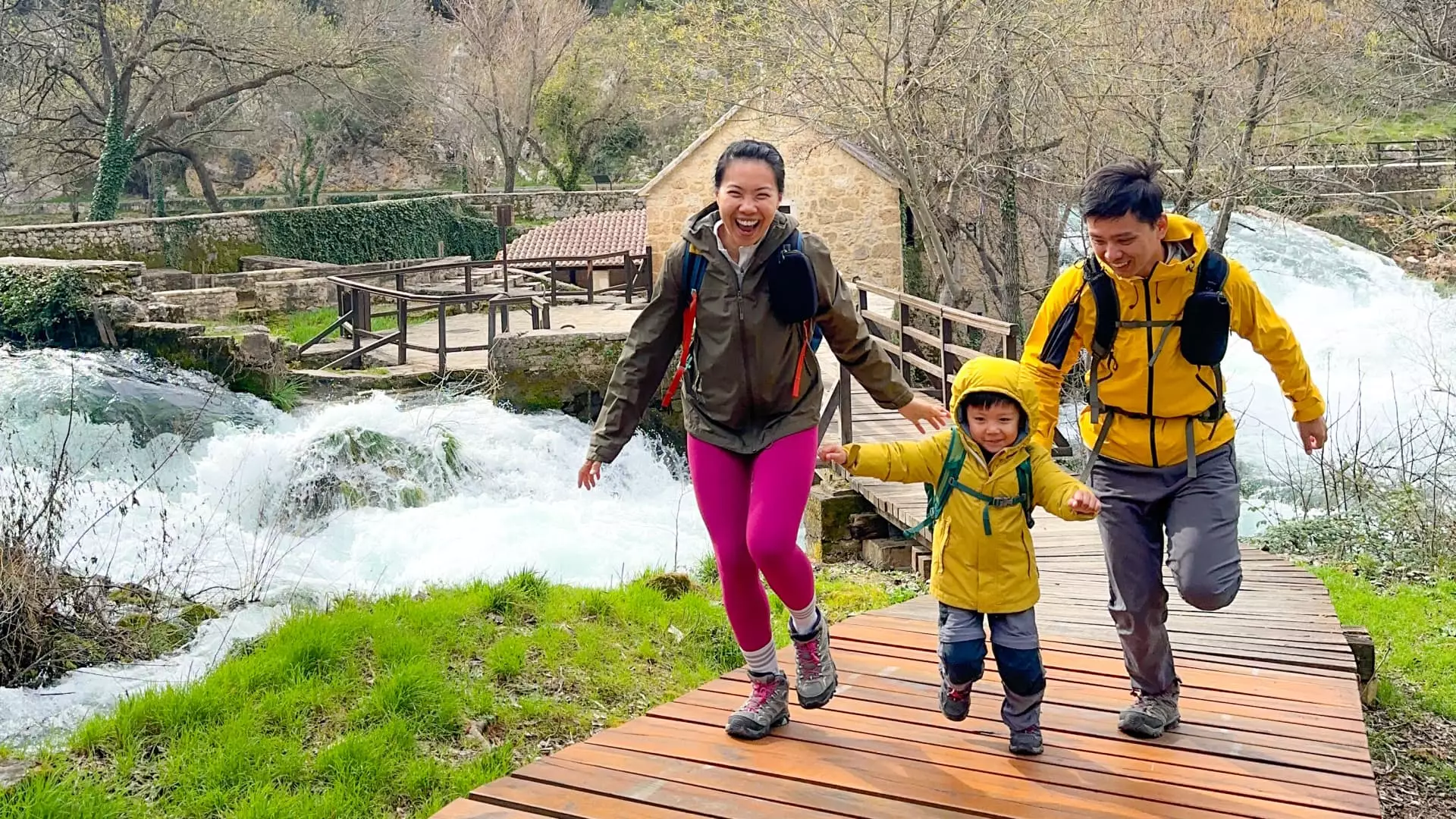Traveling is often seen as a pursuit reserved for singles or couples without kids, with the common misconception that having children means giving up on exploring the world. However, for the Singaporean couple Carol Tan and Rakcent Wong, this age-old advice only fueled their determination to prove the naysayers wrong. Carol, 36, and Rakcent, 35, embarked on a unique journey with their 4-year-old son, Atlas, across 23 countries and counting since the start of 2024. Their approach towards travel challenges the conventional notion of family life and education, as they embrace the concept of ‘worldschooling.’
The term ‘worldschooling’ encapsulates the idea of turning the world into a classroom, where parents take the role of educators in providing immersive experiences for their children. This educational method goes beyond traditional classroom settings, offering children the opportunity to learn through exploration and firsthand experiences. For Tan and Wong, worldschooling became a way to enrich Atlas’s learning journey in his formative years before entering primary school. By introducing their son to diverse cultures, languages, and environments, the couple believes that Atlas’s education should be built on curiosity, problem-solving, and socialization through immersion.
Tan and Wong’s decision to blend travel with education stemmed from their mutual love for exploration that existed even before Atlas came into their lives. Their adventurous spirit led them to unconventional travel experiences, from motorcycling across Southeast Asia to sleeping in the desert in Egypt. Recognizing the personal growth they experienced after each trip, the couple concluded that exposing their child to travel early on would be invaluable. Rejecting the idea of parting with Atlas during traditional school hours, Wong emphasized the importance of being present to witness their child’s ‘firsts.’
As Atlas joins his parents on a journey across different countries, the family’s approach to education revolves around play and practical experiences. Through interactions with children from various backgrounds and cultures, Atlas learns the importance of socialization and cooperation. By immersing himself in unfamiliar environments, he develops problem-solving skills and nurtures his innate curiosity. Tan and Wong guide their son by modeling behaviors, such as demonstrating how to ask questions when faced with the unknown or resolving conflicts amicably on the road.
Since the beginning of their worldschooling adventure, Tan and Wong have witnessed remarkable transformations in Atlas’s behavior and attitude towards learning. The once picky eater has broadened his palate by embracing a variety of foods, demonstrating a newfound sense of enjoyment. Furthermore, Atlas’s curiosity about the world has grown, evident in his increasingly specific questions and thirst for knowledge. Wong highlights that Atlas’s drive to learn is intrinsic, emphasizing that information is not imposed on him but sought out voluntarily.
As the family reflects on their journey so far, they contemplate extending their sabbatical to two years to continue exploring the vastness of the world. Tan and Wong are committed to providing Atlas with a unique educational experience that extends beyond textbooks and classrooms. By prioritizing hands-on learning, cultural immersion, and personal growth, the couple aims to instill in Atlas a lifelong love for exploration and discovery. In defying societal expectations and embracing a non-traditional approach to education, Carol Tan, Rakcent Wong, and Atlas exemplify the transformative power of travel and the value of redefining boundaries in pursuit of knowledge and experience.


Leave a Reply